-
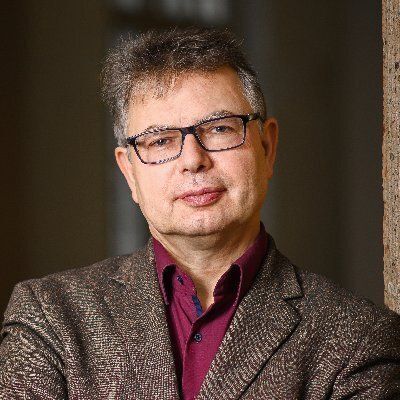 Founder: Jurgen Zimmerer
Founder: Jurgen ZimmererJürgen Zimmerer is Professor of History at the University of Hamburg/Germany and Founder of the International Network of Genocide Scholars (INoGS) of which he served as President from 2005 to 2017. Between 2005 and 2011 he served as Editor/Senior Editor of the Journal of Genocide Research and was from 2007 to 2011 Founding Director of the Sheffield Centre for the Study of Genocide and Mass Violence. His research interests include German Colonialism, Comparative Genocide, Colonialism and the Holocaust, Critical Prevention Studies and Environmental Violence and Genocide. He is author and editor of ten books and journal special issues. He continues to play a vital and active role in the INoGS community.
INoGS Executive Board
The Executive Board for the 2023 – 2025 session was democratically elected in February 2023.
-
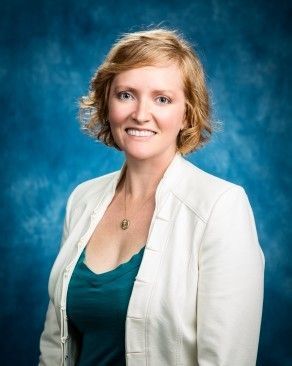 President: Elisabeth Hope Murray
President: Elisabeth Hope MurrayElisabeth Hope Murray is currently an Associate Professor of Security Studies and International Affairs in Daytona Beach, FL, USA. As an historical sociologist with degrees in Political Science (PhD, University of Edinburgh), Nationalism Studies (MSc, University of Edinburgh), and International Relations (BA, Samford University, USA) her interests lie predominantly in comparative genocidal ideology studies and famine as a tool of genocide. Her current research focuses on British policy in response to atrocity and genocide in the Ottoman Empire, genocide and climate change, and ideological radicalization. Elisabeth is a long-time member of INoGS serving previously as the Executive Secretary (2015-2019) and Vice-Executive Secretary (2012-2015). Although she is an American citizen, she has lived in Australia, New Zealand, Venezuela, Scotland, and Germany.
.
-
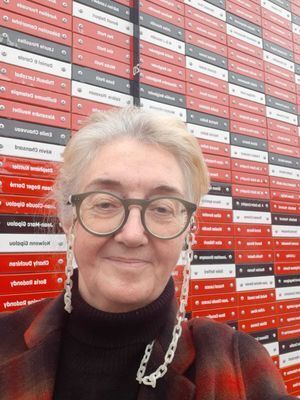 Elisabeth Anstett
Elisabeth AnstettElisabeth Anstett is a social anthropologist, senior tenured researcher at CNRS and member of Adès (Anthropologie bio-culturelle, Droit, Ethique et Santé), an interdisciplinary research unit at the faculty of medical and paramedical sciences of Aix-Marseille University (France). Her research focuses on dead bodies and human remains management and care in mass violence and genocide contexts and enlightens the necropolitical issues surrounding these treatments. She is co-editing the Human Remains and Violence interdisciplinary full free Open Access academic journal at Manchester University Press.
-
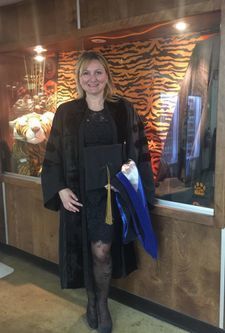 Treasurer: Rachel E. McGinnis
Treasurer: Rachel E. McGinnisRachel E. McGinnis is the Director of the Peace and Conflict Program at RIT Kosovo and an Assistant Professor in Public Policy and International Relations. She is an interdisciplinary scholar focusing on the fields of conflict science, sexual violence, and mass atrocities. Her research focal point is sexual violence during conflict concentrating specifically on male victimization. She holds a Ph.D. in Conflict Analysis and Resolution from Nova Southeastern University (NSU), a Masters and a Bachelors of Science from the Rochester Institute of Technology (RIT). She currently teaches at the RIT in Sociology/Anthropology. In addition, over the last few years, she has spent time volunteering in both Northern Ireland, Lebanon, Greece and this summer on the Turk-Syrian border. She works with PTSD and sexual violence survivors, as well as, works to bring awareness to local NGO’s, medical personnel, and government officials working with male refugees in the region. Rachel served previously as the Vice-Executive Secretary (2015-2019).
.
-
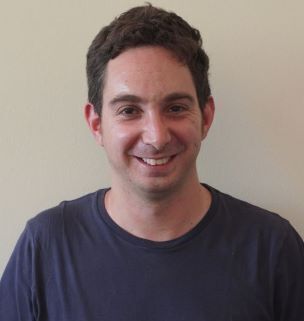 Executive Secretary: Adam Levin
Executive Secretary: Adam LevinAdam Levin is a postdoctoral research fellow in the Department of English at the University of the Witwatersrand in Johannesburg, South Africa. His research is based within the fields of English Literature and Cultural Studies. Adam entered genocide studies through his PhD study which focused on literary representations of trauma in works of Holocaust Literature and post-apartheid South African literature. Since then, his research has extended to focus on issues of race, racism, and populism in African American and post-apartheid literature. More recently, he has turned his attention to examining ways in which Humanities scholarship can engage in effective dialogues with civic engagement initiatives. In connection with this, Adam has, since 2022, been a faculty member on an interdisciplinary course entitled “Cultures of Hate and Oppression: Connecting the Conversations about Antisemitism, Hate, Holocaust, Gender and Colonialism”. The course brings together lecturing staff and postgraduate students from the University of the Witwatersrand, Bard College in the US, Central European University in Austria, as well as University of Birbeck and School of Oriental and African Studies in the UK. Working in collaboration with the Johannesburg and Holocaust Genocide Centre, the course aims to use the study of cultures of hate and oppression to prompt students to contribute to change and development within their respective societies. Apart from this, he is also a senior member of the South African Poetry Project (ZAPP), a collective of academics, professional poets and schoolteachers, whose activities are focused on promoting a love of teaching and learning poetry in South African schools. His work has been featured in Holocaust Studies: A Journal of Culture and History, English Studies in Africa, Literature, Critique and Empire Today and Safundi.
-
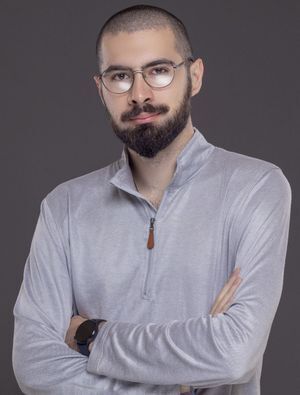 Vice-Executive Secretary: Alek Barović
Vice-Executive Secretary: Alek BarovićAlek Barović is a Montenegrin journalist, civic activist, and PhD candidate in Human Rights at the University of Padova, Italy. His research focuses on the intersections of religion, collective memory, and national identity in post-genocide societies, with particular emphasis on Bosniak, Armenian, and Kurdish communities. He is currently a Visiting Assistant in Research at the Genocide Studies Program at Yale University’s MacMillan Center. He also serves as a Research Fellow at the Genocide Research Center at Soran University in Iraqi Kurdistan.
Interns
Previous Executive Board Members
-
 Nigel Eltringham
Nigel EltringhamEmeritus Reader of the University of Sussex and has worked with the office of the Special Adviser of the UN Secretary-General on the Prevention of Genocide, providing genocide prevention training. A contributing editor of Identity, Justice and Reconciliation in Contemporary Rwanda (2009), Framing Africa: Portrayals of a Continent in Contemporary Mainstream Cinema (2013) and a contributing co-editor of Remembering Genocide (2014).
-
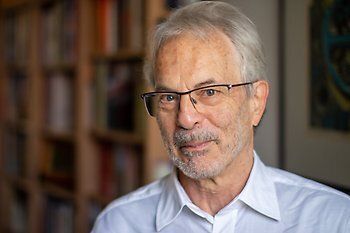 Henning Melber
Henning MelberExtraordinary Professor at the Institute of Political Science at the University of Pretoria in South Africa and at the Centre for Gender and Africa Studies at the University of the Free State in Bloemfontein. Professor Melber is also the President of The European Association of Development Research and Training Institutes.
-
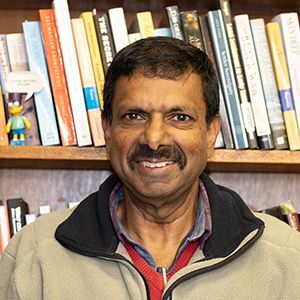 Mohamed Adhikari
Mohamed AdhikariEmeritus Associate Professor of the University of Cape Town, South Africa. His most recent work includes authoring Destroying to Replace: Settler Genocides of Indigenous Peoples (2022) and editing Civilian-Driven Violence and the Genocide of Indigenous Peoples in Settler Societies (2021).
-
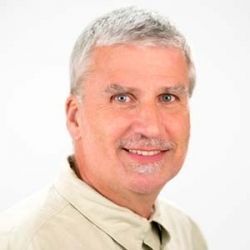 Volker Langbehn
Volker LangbehnProfessor and Undergraduate advisor of the German Program in the Department of Modern Languages and Literatures at San Francisco State University. Author of Arno Schmidt's Zettel's Traum: An Analysis (2003) and co-author of German Colonialism: Race, Holocaust, and Postwar Germany (2011).
-
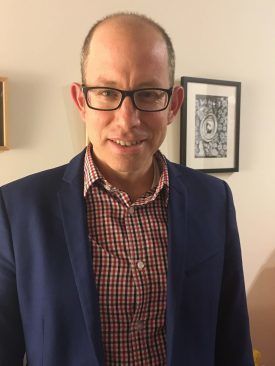 Raz Segal
Raz SegalAssociate Professor of Holocaust and Genocide Studies and Endowed Professor in the Study of Modern Genocide at Stockton University, where he also serves as Director of the MA program in Holocaust and Genocide Studies. Dr. Segal has held a Harry Frank Guggenheim Fellowship, a Fulbright Fellowship, and a Lady Davis Fellowship at the Hebrew University of Jerusalem. His publications include Genocide in the Carpathians: War, Social Breakdown, and Mass Violence, 1914-1945 (Press, 2016; paperback 2020), and he is guest editor of the special issue on Genocide: Mass Violence and Cultural Erasure of Zmanim: A Historical Quarterly, vol. 138 (2018)
-
 Umit Kurt
Umit KurtAuthor of Antep 1915: Genocide and Perpetrators (2018) and The Armenians of Aintab: The Economics of Genocide in an Ottoman Province (2021). A Polonsky Fellow in the Van Leer Institute in Jerusalem and the recipient of the prestigious Armenian Studies Scholarship Award from the Calouste Gulbenkian Foundation in Lisbon.
-
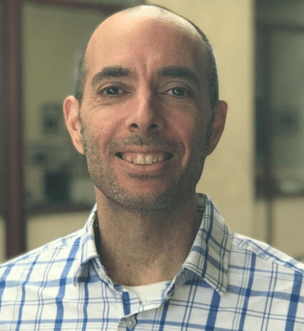 Jeff Bachman
Jeff BachmanJeff Bachman is an Associate Professor at American University’s School of International Service. He is the author of The Politics of Genocide: From the Genocide Convention to the Responsibility to Protect (Rutgers University Press, 2022) and The United States and Genocide: (Re)Defining the Relationship (Routledge, 2017). He is also the editor of Cultural Genocide: Law, Politics, and Global Manifestations (Routledge, 2019) and the forthcoming volumes Genocide: The Path Ahead (Rutgers University Press, 2023/2024) and A Modern History of Forgotten Genocides and Mass Atrocities (Routledge, 2024). He is currently working on a new book War and Genocide: Hierarchies of Violence and Suffering. His research has also been published in Journal of Genocide Research, Third World Quarterly, Genocide Studies and Prevention, and International Studies Perspectives, among others. He also hosts a New Books in Genocide Studies podcast and is on the Genocide Studies and Prevention editorial board.
Previous Interns
-
Spring 2024-Summer 2024 Intern
Paula Durant
-
Fall 2023-Spring 2024 Interns
Casandra Walker
-
Fall 2022-Summer 2023 Interns
Trevor LaClair
Audrey Justice -
Spring 2022 Interns
Jordon Croll
Kyle Povio -
Spring 2021 Interns
Adaline Huelet
Allen Schocken -
Fall 2020 Interns
Willow Kelly
Gavin Olson

